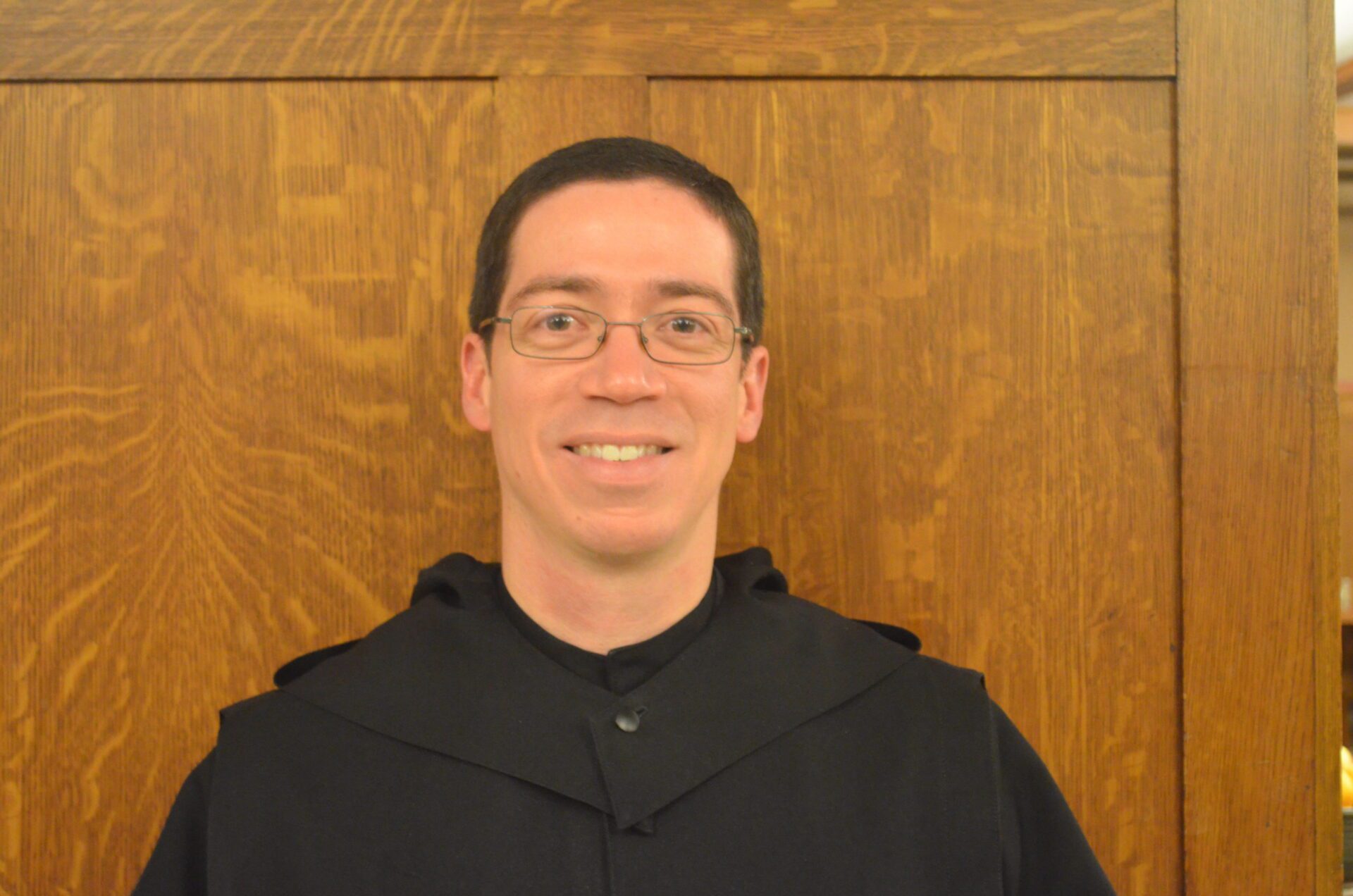Whether you have questions about discernment and vocations or want general information about Belmont Abbey, we invite you to reach out and ask!
Homilies

March 25, 2019
Third Sunday of Lent, March 24, 2019
 On Ash Wednesday, when we began Lent, we heard the message from St. Paul: behold, now is a very acceptable time; now is the day of salvation. It was a call for us to respond to the present opportunity, the spiritual season that was beginning, to make use of the time given to us to change our ways. As St. Paul wrote in that same reading: we appeal to you not to receive the grace of God in vain.
On Ash Wednesday, when we began Lent, we heard the message from St. Paul: behold, now is a very acceptable time; now is the day of salvation. It was a call for us to respond to the present opportunity, the spiritual season that was beginning, to make use of the time given to us to change our ways. As St. Paul wrote in that same reading: we appeal to you not to receive the grace of God in vain.
On this third Sunday of Lent, we again hear a similar message, and perhaps we are being invited to consider how our practices of Lent have been going, now two and a half weeks into the season. Do we find that we are growing in our love for God? Have we done good things in this Lenten season so far? And whether we have kept faithfully to our Lenten resolutions, or whether we have struggled in our Lenten practices, in either case, hearing this message today against presumption and procrastination is good for us. It will either reconfirm us in our intentions and efforts, or encourage us to begin again.
The gospel approaches us with the reality of the uncertainty and fragility of life. We are definitively given only the present; we should not rely on having tomorrow. Two events are mentioned in the gospel in which people unexpectedly died. The first was caused by immoral human action; Pilate in his caprice had some worshipers in the Temple put to death. And truly, we know all too well from the news of mass shootings and terrorism, that human beings continue to lose their lives without warning and without preparation, because of the bad actions of other people. The second incident mentioned was a disaster, an accident; a tower in Siloam fell and crushed the people who happened to be standing next to it at the time. And likewise do accidents continue to happen today: plane crashes, car accidents, and the like. In response to both these incidents, Jesus says: I tell you, if you do not repent, you will all perish as they did! And here, Jesus explicitly says that those who died were not more wicked than other people. “Do you think that … they were greater sinners than all others? By no means!” Jesus is rather warning about the danger of dying unexpectedly and unprepared.
In a classic story of the devil, three demons come to Satan presenting to him their strategies for deceiving humanity. The first says that he will endeavor to convince human beings that God does not exist. But Satan replied that people can see goodness, beauty, truth, and love, and in their hearts, they know all too well that God exists; so, such a strategy will not succeed in deceiving more than just a few people. The second says that he will endeavor to convince human beings that the devil does not exist, and that there is no evil power intentionally working against them. To this one Satan also replied without enthusiasm. “People see all too well the evidence for true evil in the world, for more than a handful to fall victim to that type of deceit either,” he says. Finally, the third one came forward and said that he would endeavor to convince people that they had plenty of time. Later would be a better time to make amends and convert their hearts, to begin to lead a virtuous life, and to respond to God seriously. And to this idea, Satan responded with excitement. “This idea will deceive many, for although people may believe in God and know that they ought to lead good lives, and may believe in the devil and know that they ought to resist and oppose evil in all its forms, still they will be happy to wait until later to put forth their efforts. And many will be deceived through complacency, presumption, procrastination, and laziness; by getting them to desire temporary evil things and continually delaying what is of lasting good.” And hence we have Jesus’ warning today: I tell you, if you do not repent, you will all perish as they did! And indeed, if our repentance is continually put off until tomorrow, it will never happen, for we do not live in tomorrow, only today.
To emphasize this teaching, Jesus speaks a parable. A person had a fig tree that was producing no fruit. For three years he had come back, giving it more chances and more time, but still there was no fruit. Finally, with the advice of the gardener, it was decided that the tree would be given one more year, during which it would be especially cared for and nourished. And if it still produced no fruit, it would then be cut down. “Why should it continue to consume resources wastefully, not producing fruit?” Likewise are we to realize that our time is not endless. Our days are numbered – how many we will ultimately have is unknown, but the Scriptures say that our lives are in any case short, and we should make good use of the time we are given. As St. Benedict says, our life has been lengthened by way of a truce, that we may amend our misdeeds, that the patience of God might lead us into repentance.
Ultimately, we know that the way of repentance and conversion, turning to follow God’s way, will lead to a happier life. It is such a fullness of life, that afterwards we will reproach ourselves for taking as long as we did, and for time we might have wasted. The fruit of the Spirit of God is love, joy, peace, patience, kindness, generosity, faithfulness, gentleness, and self-control. And who would not want to live with those, and instead live with unhappiness, anxiety, unkindness, impatience, and selfishness. To follow the way of God is also to enter into intimate relationship with God, as Moses did before us, who saw God face to face, and with whom he conversed. It is to learn ineffable things, that human lips are unable to express, but which leave the soul astounded and in rapture. And, it is to accomplish much good in the world, delivering people from bondage, healing them, instructing them in the way to life, conquering and thwarting evil in the world. It will be especially beneficial for all those whom we love, and it will be the best we can do to help them. So, in the end, what type of life do we want? What type of people do we want to be?
In this Eucharist, we pray for the grace to receive Christ’s message – to reach for full repentance today, and put nothing off until tomorrow. And in this Lenten season, may we enter more fully into the life God has prepared for us. Amen.
Fr. Elias Correa-Torres, O.S.B.